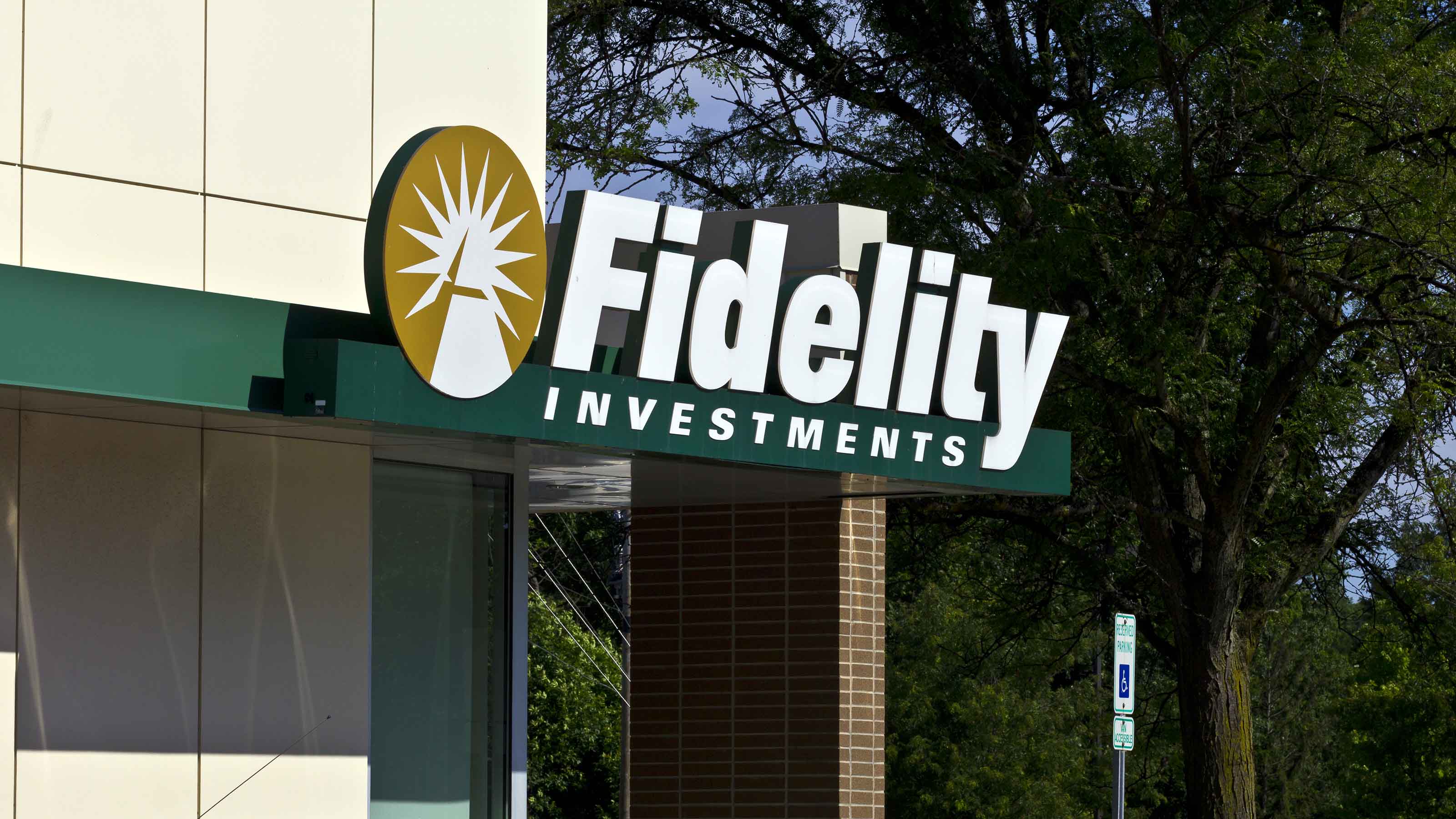Did Fidelity Just Kill Commission-Free Trading?
Commission-free trading is here to stay after Fidelity said it has reached an agreement with dozens of ETF providers.

Karee Venema

Profit and prosper with the best of Kiplinger's advice on investing, taxes, retirement, personal finance and much more. Delivered daily. Enter your email in the box and click Sign Me Up.
You are now subscribed
Your newsletter sign-up was successful
Want to add more newsletters?

Delivered daily
Kiplinger Today
Profit and prosper with the best of Kiplinger's advice on investing, taxes, retirement, personal finance and much more delivered daily. Smart money moves start here.

Sent five days a week
Kiplinger A Step Ahead
Get practical help to make better financial decisions in your everyday life, from spending to savings on top deals.

Delivered daily
Kiplinger Closing Bell
Get today's biggest financial and investing headlines delivered to your inbox every day the U.S. stock market is open.

Sent twice a week
Kiplinger Adviser Intel
Financial pros across the country share best practices and fresh tactics to preserve and grow your wealth.

Delivered weekly
Kiplinger Tax Tips
Trim your federal and state tax bills with practical tax-planning and tax-cutting strategies.

Sent twice a week
Kiplinger Retirement Tips
Your twice-a-week guide to planning and enjoying a financially secure and richly rewarding retirement

Sent bimonthly.
Kiplinger Adviser Angle
Insights for advisers, wealth managers and other financial professionals.

Sent twice a week
Kiplinger Investing Weekly
Your twice-a-week roundup of promising stocks, funds, companies and industries you should consider, ones you should avoid, and why.

Sent weekly for six weeks
Kiplinger Invest for Retirement
Your step-by-step six-part series on how to invest for retirement, from devising a successful strategy to exactly which investments to choose.
Ever since Charles Schwab launched the first real discount brokerage in 1974, the trend has been toward lower and lower trading commissions and fees, culminating in 2019 when virtually every major retail broker switched to zero-commission trading.
Earlier this year, that appeared to be going in reverse after Fidelity Investments announced plans to introduce a $100 "surcharge" on certain ETF trades. It wasn't, strictly speaking, a trading commission, but for all intents and purposes, it might have been considered one.
Investors likely wouldn't have noticed a difference, as the charge was going to being levied on only nine ETF issuers, none of which are in the top 50 by market share. These are smaller, more obscure ETFs that you probably weren't likely to buy anyway. The ETF issuers affected were Adaptive, AXS Investments, Cambiar, Day Hagan, Rayliant, Regents Park, Running Oak, Simplify Asset Management and Sterling Capital.
From just $107.88 $24.99 for Kiplinger Personal Finance
Become a smarter, better informed investor. Subscribe from just $107.88 $24.99, plus get up to 4 Special Issues

Sign up for Kiplinger’s Free Newsletters
Profit and prosper with the best of expert advice on investing, taxes, retirement, personal finance and more - straight to your e-mail.
Profit and prosper with the best of expert advice - straight to your e-mail.
However, Fidelity has since reached agreements with these issuers and dozens of other providers of exchange-traded funds. The firm is also in constructive dialogue with many others. As a result, no service fees will be incurred at this time.
As a Fidelity spokesperson told Kiplinger, "Fidelity remains committed to providing clients choice through an open architecture investment platform. The arrangements we have with asset managers help us uphold the platform and the exceptional value it provides for all products, including customer service, research tools, technology capabilities, and security measures to drive a positive experience for investors."
Fidelity adds that the "decision to harmonize some of our fee policies comes as our level of support and service for ETFs across the industry is growing rapidly. We continue to work closely with asset managers, as we've always done, to engage in constructive dialogue and reach outcomes that reflect a more consistent approach across mutual funds and ETFs. Fidelity provides transparency to investors for commissions, margin rates, and fees at Fidelity.com."
Still there are implications here for investors, and the incident reveals a lot about the "pay to play" incentive structure of the brokerage industry.
Let's dig deeper.
Why would Fidelity consider a surcharge?
Mutual funds have always paid for the privilege of being available on brokerage platforms. Whether by sales loads or 12b-1 fees, mutual funds have traditionally incentivized brokerage firms to carry their offering and individual stock brokers and advisers to sell them.
A sales load is a commission that comes off the top of an investment. For example, if a mutual fund charges a 5% load, you're really only investing 95 cents on the dollar, with the other 5% going into the broker's pocket. Loaded mutual funds have really fallen out of favor. Recent research from the Investment Company Institute found that 92% of mutual fund sales by dollars invested went into no-load funds.
Another industry trick is the 12b-1 fee. This is, in effect, a trailer the broker gets for every year the client continues to hold the fund. In theory, this incentivizes the broker to hold on to the fund instead of churning the account in pursuit of new commissions. But it's still money flowing out of the pocket of the investor and into the pocket of the broker.
ETFs have long been touted as cheaper alternatives to traditional mutual funds, and for the most part this is true. There are no loads for ETFs, as they trade like stocks and thus enjoy free or nearly free trading commissions at most brokerage houses. And because ETFs are often index funds and have very limited trading expenses, they can' charge very low internal expenses. The expense ratio on the popular iShares Core S&P 500 ETF (IVV) is just 0.03%, for example, meaning that for every $1,000 you invest, you lose just 30 cents in fees per year.
And here's where pay to play comes into effect.
Despite the fact that ETFs trade on stock exchanges just like stocks, some brokers have "maintenance arrangements in place" in which the ETF managers share a portion of their management fees with the broker for the privilege of having the ETFs available at the broker. In the case of Fidelity, the company is asking for 15% of the fees collected by the managers. For the ETF managers that didn't take the deal, any service fee would be limited to 5% of a buy, up to $100.
What does this mean for investors?
It seems that no matter how many fiduciary rules the regulators put in place, there are always going to be incentives for brokers and managers to act against the interests of their investors. Management fees on mutual funds and ETFs have really come down over the past few decades to the point that a large ETF like IVV can charge just 0.03% and still turn a profit for the manager.
But if fees are the start of a new trend in the industry, then it's likely that the overall cost to clients could rise. If the ETF managers have to pay the broker a cut, they will have less revenue to cover their costs and pay their staff. As a practical matter, that likely means they'll need to charge higher fees.
Another unintended consequence is that fees could strengthen the large, existing players in the industry and penalize smaller upstarts. This would potentially reduce the available options to the investor and reduce competition.
In the bigger picture, the takeaway may be that the great, multi-decade trend toward lower and lower fees to investors could hit the end of the line at some point in the near future. This doesn't mean we'll be going back to the pre-1974 days of ridiculously expensive fixed commissions, of course. But at the margin, it does mean a little less money in investors' pockets.
Editor's Note: This article initially stated that based on a hypothetical $100 service fee, "you could buy a single share of an ETF for $50 and then pay a 200% commission on that purchase in the form of the $100 surcharge" and that ETFs of issuers who did not reach an agreement with Fidelity would be "subject to a $100 surcharge." This is not accurate. Any service fee would be limited to 5% of a buy, up to $100. This article has also been updated to reflect that Fidelity has reached agreements with these issuers and dozens of other ETF providers.
Related Content
Profit and prosper with the best of Kiplinger's advice on investing, taxes, retirement, personal finance and much more. Delivered daily. Enter your email in the box and click Sign Me Up.

Charles Lewis Sizemore, CFA is the Chief Investment Officer of Sizemore Capital Management LLC, a registered investment advisor based in Dallas, Texas. Charles is a frequent guest on CNBC, Bloomberg TV and Fox Business News, has been quoted in Barron's Magazine, The Wall Street Journal, and The Washington Post and is a frequent contributor to Yahoo Finance, Forbes Moneybuilder, GuruFocus, MarketWatch and InvestorPlace.com.
- Karee VenemaSenior Investing Editor, Kiplinger.com
-
 Quiz: Do You Know How to Avoid the "Medigap Trap?"
Quiz: Do You Know How to Avoid the "Medigap Trap?"Quiz Test your basic knowledge of the "Medigap Trap" in our quick quiz.
-
 5 Top Tax-Efficient Mutual Funds for Smarter Investing
5 Top Tax-Efficient Mutual Funds for Smarter InvestingMutual funds are many things, but "tax-friendly" usually isn't one of them. These are the exceptions.
-
 AI Sparks Existential Crisis for Software Stocks
AI Sparks Existential Crisis for Software StocksThe Kiplinger Letter Fears that SaaS subscription software could be rendered obsolete by artificial intelligence make investors jittery.
-
 5 Top Tax-Efficient Mutual Funds for Smarter Investing
5 Top Tax-Efficient Mutual Funds for Smarter InvestingMutual funds are many things, but "tax-friendly" usually isn't one of them. These are the exceptions.
-
 Why Invest In Mutual Funds When ETFs Exist?
Why Invest In Mutual Funds When ETFs Exist?Exchange-traded funds are cheaper, more tax-efficient and more flexible. But don't put mutual funds out to pasture quite yet.
-
 Social Security Break-Even Math Is Helpful, But Don't Let It Dictate When You'll File
Social Security Break-Even Math Is Helpful, But Don't Let It Dictate When You'll FileYour Social Security break-even age tells you how long you'd need to live for delaying to pay off, but shouldn't be the sole basis for deciding when to claim.
-
 I'm an Opportunity Zone Pro: This Is How to Deliver Roth-Like Tax-Free Growth (Without Contribution Limits)
I'm an Opportunity Zone Pro: This Is How to Deliver Roth-Like Tax-Free Growth (Without Contribution Limits)Investors who combine Roth IRAs, the gold standard of tax-free savings, with qualified opportunity funds could enjoy decades of tax-free growth.
-
 One of the Most Powerful Wealth-Building Moves a Woman Can Make: A Midcareer Pivot
One of the Most Powerful Wealth-Building Moves a Woman Can Make: A Midcareer PivotIf it feels like you can't sustain what you're doing for the next 20 years, it's time for an honest look at what's draining you and what energizes you.
-
 Stocks Make More Big Up and Down Moves: Stock Market Today
Stocks Make More Big Up and Down Moves: Stock Market TodayThe impact of revolutionary technology has replaced world-changing trade policy as the major variable for markets, with mixed results for sectors and stocks.
-
 I'm a Wealth Adviser Obsessed With Mahjong: Here Are 8 Ways It Can Teach Us How to Manage Our Money
I'm a Wealth Adviser Obsessed With Mahjong: Here Are 8 Ways It Can Teach Us How to Manage Our MoneyThis increasingly popular Chinese game can teach us not only how to help manage our money but also how important it is to connect with other people.
-
 Looking for a Financial Book That Won't Put Your Young Adult to Sleep? This One Makes 'Cents'
Looking for a Financial Book That Won't Put Your Young Adult to Sleep? This One Makes 'Cents'"Wealth Your Way" by Cosmo DeStefano offers a highly accessible guide for young adults and their parents on building wealth through simple, consistent habits.